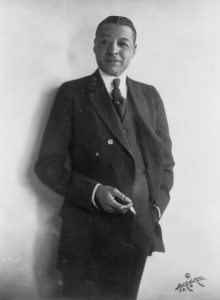|
Getting your Trinity Audio player ready...
|
Created by President Jimmy Carter in 1979, and further commemorated by President Barack Obama, the month of June has been declared “African American Music Appreciation Month.” Originally called “Black Music Month,” June marks the celebration of African American music and its influence that comprise an essential part of our nation’s cultural heritage. President Obama noted that African American music and musicians helped the country “to dance, to express our faith through song, to march against injustice, and to defend our country’s enduring promise of freedom and opportunity for all.”
Although we’ve progressed past the many physical renditions of music, such as cassette tapes and CDs, and moved mostly toward digital streaming, it is important to acknowledge a foundational predecessor: sheet music. In the 19th century, the music industry was dominated by sheet music publishers, and rose in tandem with blackface minstrelsy and vaudevillian performances—typically mocking the Black experience in America. Performing arts was one of the few professions available to African Americans, and performers and musicians sought to add humanity and depth to the depiction of Black life on stage. It was in this reshaping that African American musicians of this era began writing music in new forms, such as jazz and blues, altering the history and forward momentum of music in America.

In the late-19th century, there was a massive explosion in parlor music, and playing the piano became an essential skill for the middle-class family. In that era, if one wanted to hear a popular new song, they would have to purchase the sheet music and then perform it in an amateur fashion in their own home. However, African American composers producing these songs were often visually absent from their own music, with covers of their published sheet music featuring white performers or characters, sometimes in blackface. Our 2019 online exhibit Swing Along! The Music of Early African American Composers illuminates the authors behind the music.

To further celebrate and appreciate those responsible for pioneering an industry with little recognition, we invite you to peruse our African American Sheet Music Collection, featuring works of notable icons such as Bert Williams, the first Black man to have the leading role in a film, and W.C. Handy, the “Father of Blues,” among others.
Special Collections houses over 8,000 pieces of sheet music from the mid-19th century onward, mostly organized into the Tampa General Music Collection and the Tampa African American Sheet Music Collection. Explore the history today.